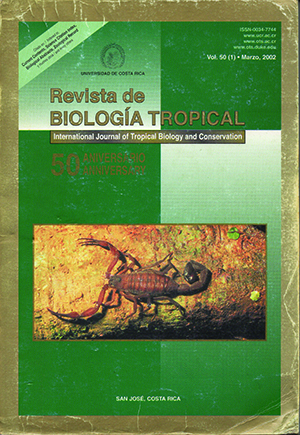Abstract
In Latin America, Cedrela odorata is a wide ranging species that occurs in several environments, where it shows significant morphological variation. A common garden experiment was established with seedlings from 63 families of ten populations from two habitat types (mesic and dry), distributed throughout Costa Rica, to examine the relationships between quantitative variation and site of population origin. Seedlings from dry areas tended to be distinct from those from mesic areas, with climatic grouping of provenance explaining a mean of 52% of the total variance and 80% of the genetic variance. Cluster analysis for seedling traits showed two natural groupings of families, which corresponded for the most part with the regional population groupings into mesic (Atlantic and South Pacific) and dry (North Pacific) groups. Cluster analysis based on seed weight and size also separated populations into mesic and dry climatic groups. Seeds from populations in dry areas were 43% heavier, and seedlings were 61% taller, 117% greater in diameter, and with leaflets 39% longer and 81% wider. These differences may be related to fast growth in the dry zone for taking advantage of early life cycle moisture availability. These findings may indicate incipient speciation in C. odorata in Costa Rica. Evaluation of reproductive isolating mechanisms between populations from the mesic and dry zones, and of clines at potential zones of hybridization would assist in testing a speciation hypothesis.##plugins.facebook.comentarios##

This work is licensed under a Creative Commons Attribution 4.0 International License.
Copyright (c) 2002 Revista de Biología Tropical
Downloads
Download data is not yet available.


